The process, the abstract, and a new reality
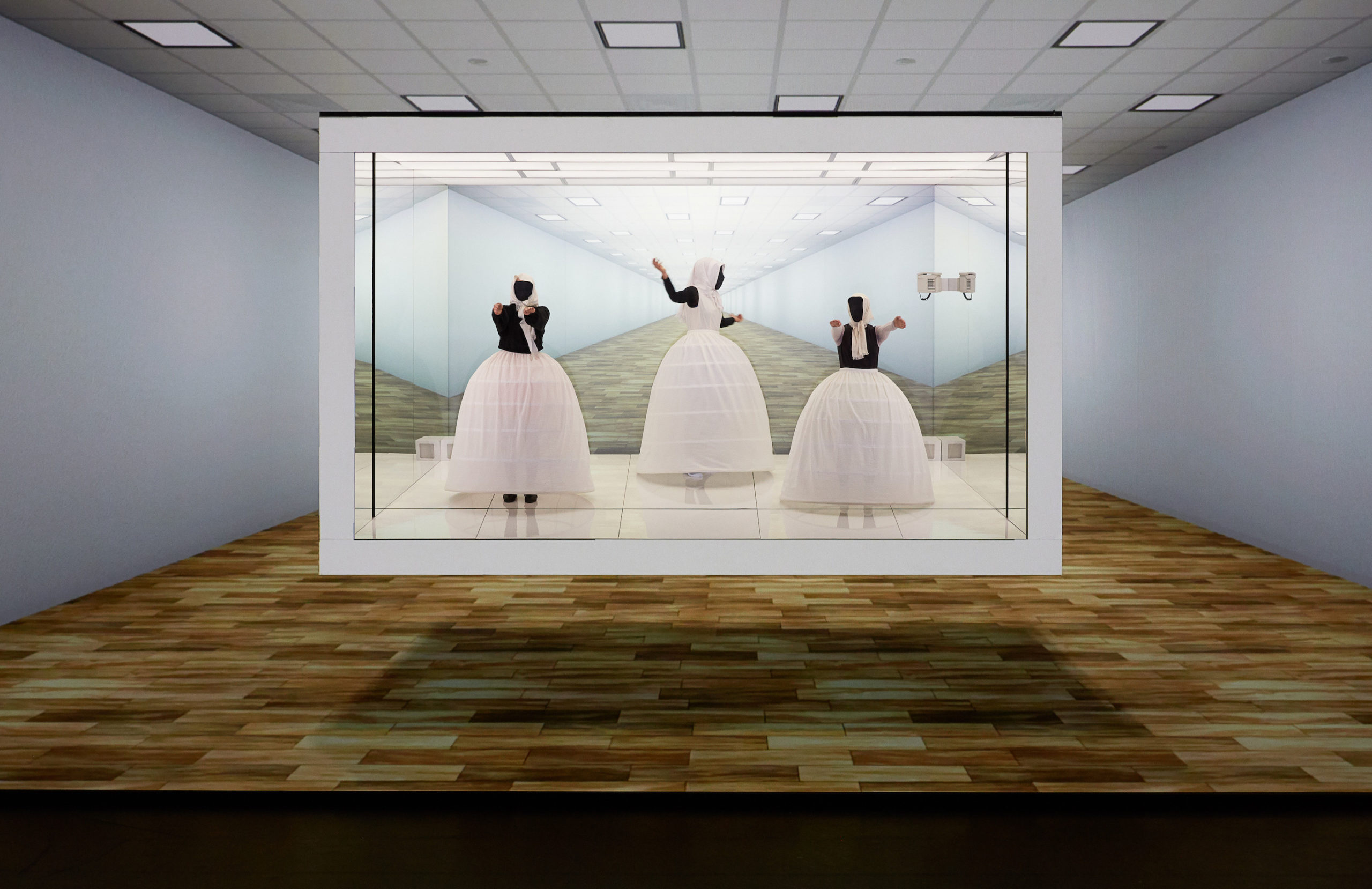
Susanne Kennedy is a director like no other. Having made a name for herself in Holland, it is her astounding pieces, flipping of famous works and the hunt for a script’s essence which undoubtedly confirms this. Inspired by the abstract, and the depths of the human psyche, Susanne explores consciousness beyond audience-expectation. We recently spoke to the director about her creative journey and philosophical beliefs as she gave us an in-depth look into the inspiration behind her latest project for the Holland Festival. Since Corona took charge, the festival has been quick to conjure new ways of attending the festival so we don’t have to miss out! You can now see the performance online for free, as well as offering a donation where and when you can.
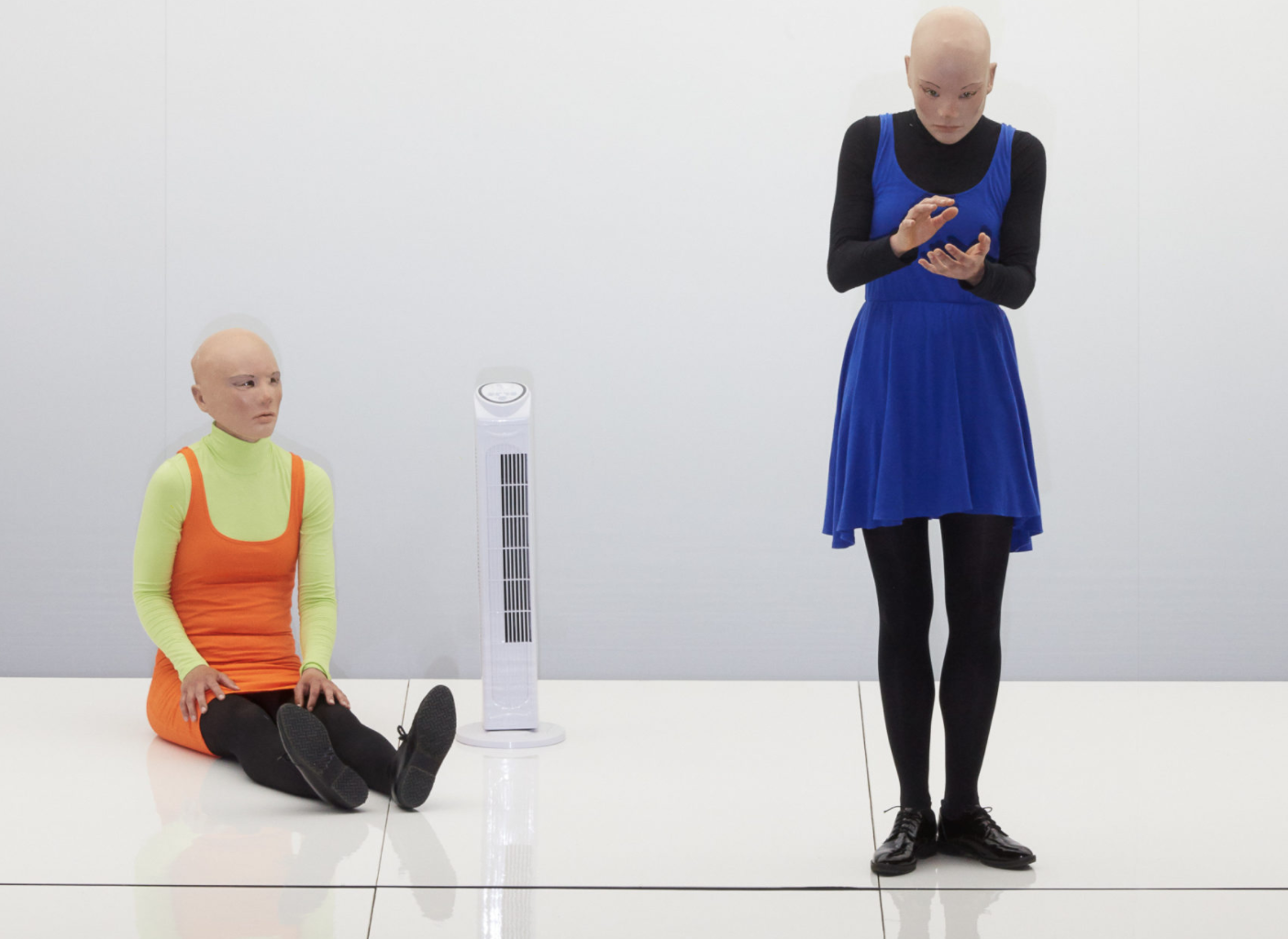
Three Sisters is a very iconic piece; how inspired are you creatively by the classics and is this where your love of theatre, or rather journey, began?
Although Three Sisters is a classic, I wouldn’t say I’m too heavily inspired by classics. During the past few years, I have started to write texts myself; its what I have always been longing for, but never knew how to get there. Mostly the pieces I’ve done in the past have all been pieces that I wrote myself but I did do a lot of classical works when I was starting out on my journey as a young director. Three sisters is an exception for me at the moment; there are so many themes in it, I knew I could use it for my vision, even though it is not my own writing.
Your work is often distorted, what drew you to see theatre through this abstract lens?
In the beginning, I would make a play, and try to push it somewhere and see how far I could go. I always had the feeling that you don’t know how a theatre play is meant to be. We have conventions on stage that everybody uses, but that does not mean a play can only be shown within that convention. I more generally think about, what is theatre? How far can I push it? How can I research where theatre can take me? I look more for a personal experience for the audience and that is very intense. I always tried to find plays, that began with that notion, then I started writing my own plays, as I felt I could go further with this idea. Storing and manipulating the original, for me, was a way of digging my own way to get there.
You tend to avoid what is supposed as, ‘psychological realism’, therefor pursuing the abstract. Do you think this dissonance between what is considered ‘reality’ and ‘art’ is, in fact, more revealing?
‘Psychological realism’ is just a term we use, but what does it even mean? I question this meaning as I find that we take these things for granted, people act on stage in a certain manner that we are used to, and if they don’t we call it ‘abstract’. I always had the feeling when I was watching theatre, that it never felt quite right for me. I couldn’t connect to the experience, I couldn’t connect to what the actors were doing on stage (speaking with a loud voice, shouting, running, doing weird stuff). Because it was not something that spoke to me, I had to find my own way. In reflecting the real world, that is what art always try to do! I try to find a form that reflects reality, that part of me that drove me to not just accept the old conventions but to really search for myself.
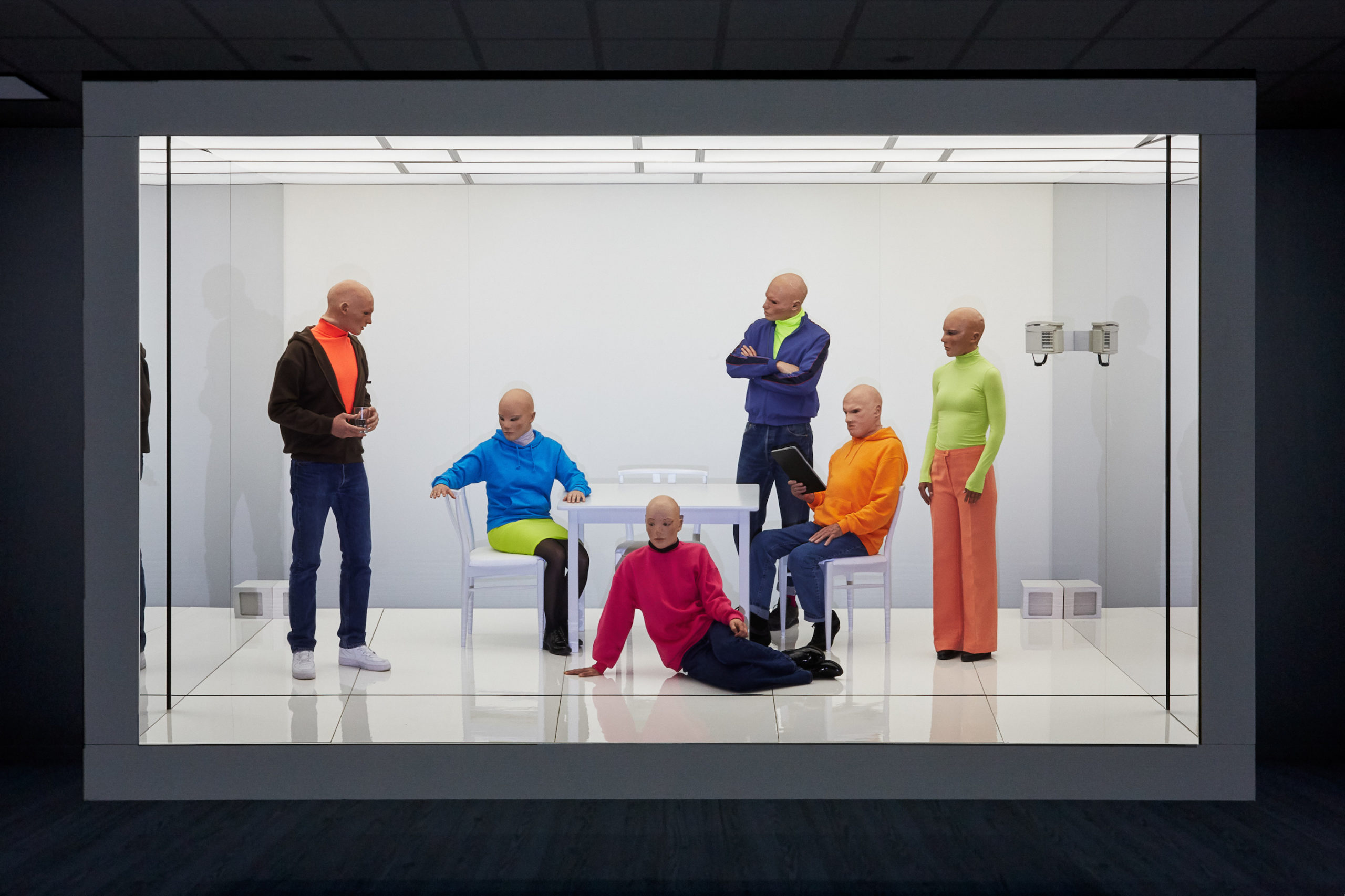
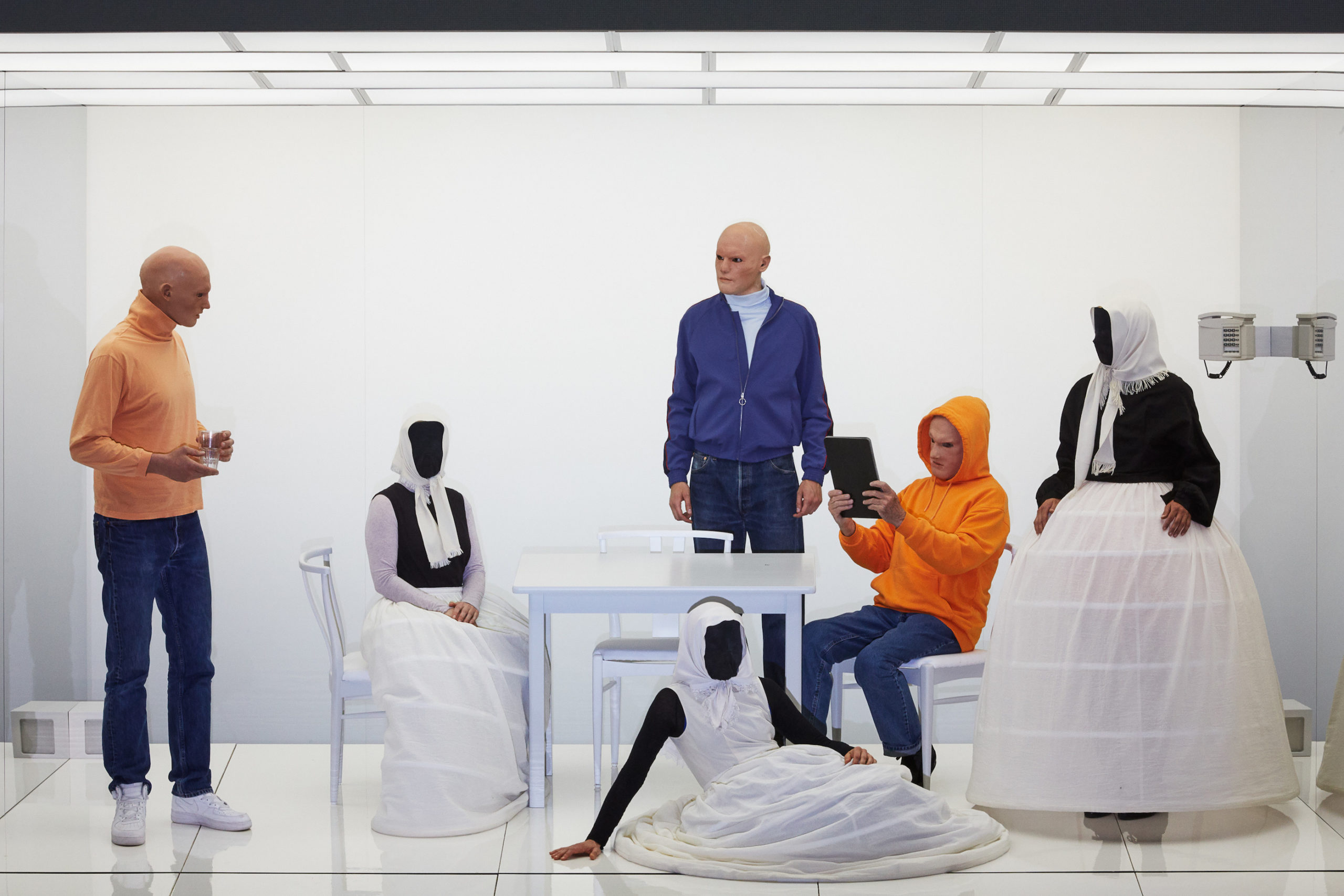
For The Holland festival, you have reimagined Chekhov’s Three Sisters; what initially drew you to this piece?
What drew me to the piece initially was the idea of the loop. In the theatre, we get to see classics over and over again, just like Three Sisters; it’s been shown all over the world ever since he wrote the play! For me, it was interesting to take the perspective of not only the Three Sisters themselves but of the audience, because we know that we are going to see them not getting to Moscow, and what we are seeing is them stuck in an eternal loop. This fascinated me because of Nietzsche, and his idea of the eternal return (the concept that if a demon comes to you at night and tells you you have to live your life over and over, is that a nightmare or do you embrace it?) I thought about using this fundamental question that we all have to ask ourselves and use it as a starting point for the three sisters.
Do you see the piece is a direct reflection on the digital world and the endless repetition of life’s moments which follow?
We live in a digital world and I think that art that is being made now cannot ignore it. This digital world is now where my art comes from. Of course, it has changed reality but it is part of who we are at the moment. I don’t think it’s possible anymore to make something that doesn’t reflect the digital world nowadays. My team and I have created these experiences (in Three Sister) that have an almost virtual reality feeling to them, giving the feeling that you get sucked in.. I think we can learn about ourselves by using digital tools.
Within the performance the sister’s are free from this ‘finiteness’; how do think we can free ourselves within reality?
I am still not sure if they are actually freed! I have the feeling that in Three Sisters they are conscious, but not yet free. I do think this freedom though is possible in reality, but it takes a lot of work, a lot of consciousness and the willingness to get there. This is a whole other topic, but this is what it’s about! To find out that in a sense that the borders we have created in our heads and the obstacles are just that- obstacles in our head and are not really there. The idea that reality might be much broader and wider and more extensive than we might think. It’s difficult to handle, so we don’t dare to go there. In terms of finiteness, yes there is death, but maybe there isn’t? That the big question that I’m still exploring, using the theatre to do so.
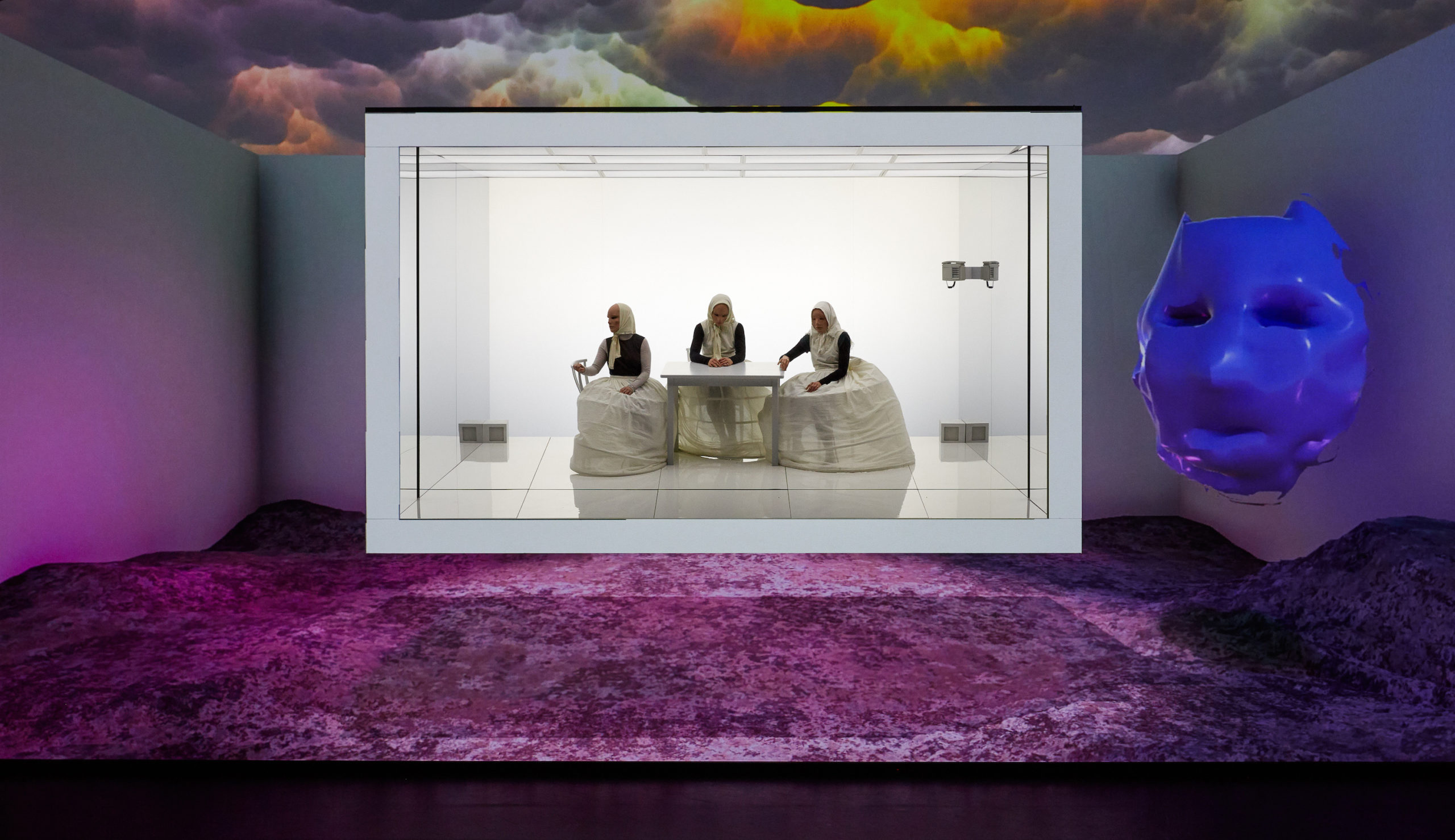
The notion of time is largely at play here; do you think ‘the loop’ be broken through creativity?
Repetition is not something we always have to be afraid of, we should only fear when repetition is unconscious. There’s a difference between ‘repetition’ and a ‘cycle’; a cycle is a very natural phenomenon (such as nature), and we don’t need to break through that! But, it is the unconscious repetition that we need to address, as it is something we all do in our own lives. We repeat the same blind mistakes, mainly because we don’t dare to break out. Of course, art helps us find new ways of consciousness, but not on its own. Art can be a big healer for sure, but consciousness needs more than art. The notion of time (within the loop) is very important to me in my art; I try to play with it so that people get lost in it!
What do you anticipate, or hope for in the future of your creative journey?
I hope to find more! I already have a beautiful, creative group around me, and I would like to build on that. I would like to use my work (even more) as a personal exploration, which is something I have been doing for the past few years.
And finally, what are you most excited to see at this year’s Holland Festival and why?
I really love Trajal Harral’s work! I have seen his pieces a few times now, it’s always so moving and so inspiring; I would definitely see his work again. I would also like to find something that I don’t know yet!
This interview was conducted prior to the festival’s reformat.
For more programme information see Holland Festival
Words by Grace Powell
Notifications